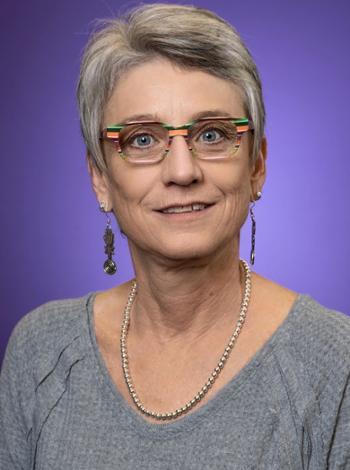Science Education
Ph.D. in Educational Studies: Science Education
The degree is distinctive and interdisciplinary in that it is designed with three areas of focus:
(a) the field of education (including science education & educational psychology)
(b) educational research methodology
(c) science content.
The science education courses, taught in the College of Education, are designed to increase understanding of current research about pedagogical content knowledge, the teaching and learning of science at all levels, national reform efforts, and science as inquiry.
The educational psychology courses are designed to help the student understand the learner and the application of psychology to education. The research courses are designed to help the students become adept in social science research methodologies.
This program has a strong research orientation. Graduates will have the knowledge and skills to assume (a) college faculty positions with responsibility in conducting educational research and in teaching undergraduate/graduate science education courses and community college level science courses or (b) district and state-level leadership positions in science education.
For complete program of studies see the TCU Online Catalog.
Ph.D. in Science Education Degree Plan

817-257-6115
m.weinburgh@tcu.edu
View Profile

We realized quickly that we were being challenged early in our programs, but it was for good reason. By the time we were writing our dissertations, we were seasoned presenters. This speaks to the culture of the program at TCU – one that challenges each student while also creating a community of practice that supports students throughout the entire program.
Katherine Fogelberg Ph.D. ’14
Completion of all non-dissertation course work
Completion of internships and apprenticeship
Completion of the qualifying exam
Completion of original research and successful defense of resulting dissertation
The Doctoral Advisory Committee assists the student in planning the completion of the program of study and in preparing for non-course work requirements such as the qualifying examination experience and the dissertation. The committee membership should be decided as soon as possible, but not later than the accrual of 36 semester hours. The Doctoral Advisory Committee consists of a minimum of four members. The major advisor, who serves as chair of the Doctoral Advisory Committee, is a full-time, tenure-track member of the College of Education faculty with graduate faculty status. The Associate Dean of Graduate Studies of the College of Education will approve committee membership and changes in that membership.
Committees for Ph.D. Educational Studies: Science Education degrees must be composed of a chairperson from the College of Education, two other professors from the COE and one professor from the College of Science and Engineering, resulting in a total of four committee members.
The College of Education is committed to helping students move from a mind set of taking courses to a mind set of adding to the established body of knowledge. The transition will involve a qualifying exam to be completed at the end of the coursework and prior to beginning the dissertation. This exam will include written and oral demonstrations of synthesis of knowledge from the course work.
All committee members will read and give feedback to the student on this written product. When all committee members are satisfied with the quality of this product, an oral examination will be scheduled within three weeks. The oral examination is over only the topics covered in the written product and ensures that the student can present, as well as construct, his or her concepts in educational studies. The student’s committee will determine by consensus if he or she passed or failed the examination. The committee decides if the student can retake the oral examination at a later time.
The Doctoral Advisory Committee recommends to the Associate Dean of Graduate Studies of the College of Education that the student be admitted to candidacy for the Ph.D. degree when the student has completed all requirements for the degree except the dissertation. This includes satisfactory completion of all course work required in the program of study, successful completion of the qualifying examination experience, and the approval of the dissertation prospectus.
The Ph.D. dissertation is the presentation of original research. A number of creative, scholarly formats are allowed for the dissertation for the Ph.D. in Educational Studies. The Doctoral Advisory Committee and the student are provided considerable flexibility on the format and content of the dissertation. The prospectus for the dissertation must be a clear and thorough presentation of all tasks to be accomplished. The prospectus states the final form, format, and contents of the dissertation and must be approved and formally accepted by the Doctoral Advisory Committee. The dissertation prospectus can be written before, concurrent with, or after the successful completion of the qualifying examination experience.
The Doctoral Advisory Committee must approve the dissertation upon its completion. This approval is based on the quality of the final product not just the completion of the tasks outlined in the prospectus. After final approval, a public announcement of the oral defense of the dissertation is disseminated to the faculty of the College of Education and other appropriate units.
The dissertation must be concluded within three years of admission to candidacy. The student must be enrolled during the academic term in which all degree requirements are completed.
Applicants must present a strong academic record, official GRE scores optional, a writing sample (15-20 pages, exclusive of notes and works cited) that demonstrates appropriate academic writing skills needed for success in a graduate program and three letters of recommendation.
Application Deadline: February 1